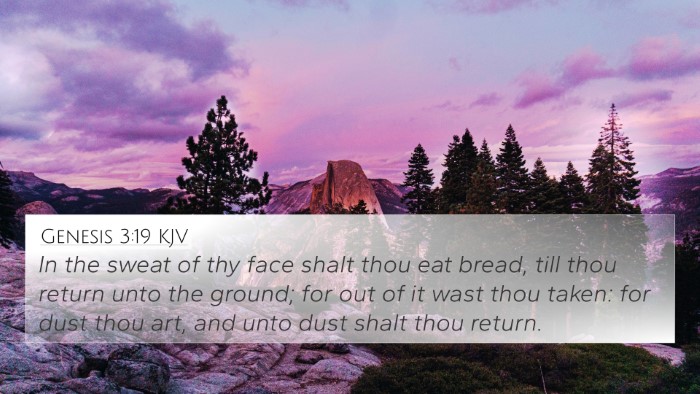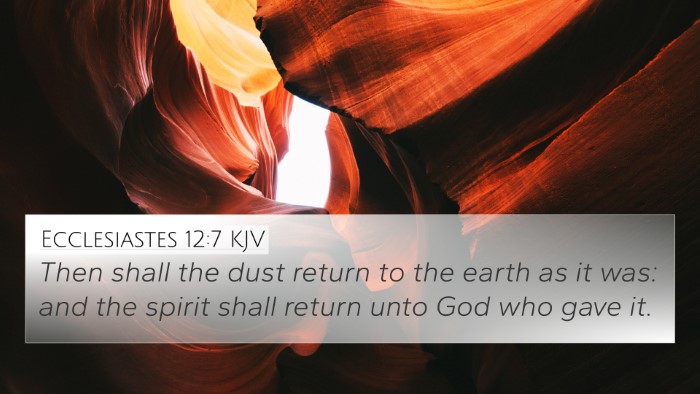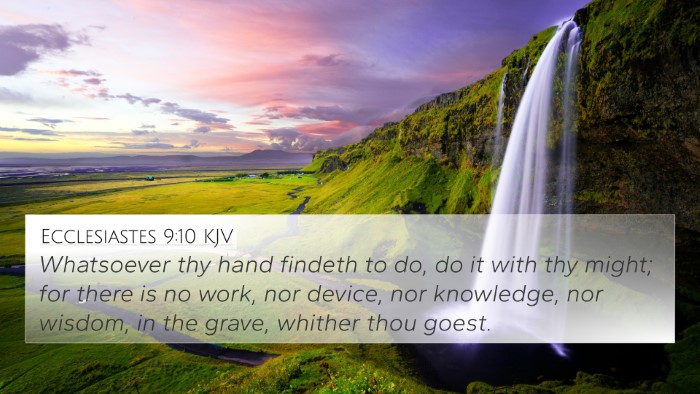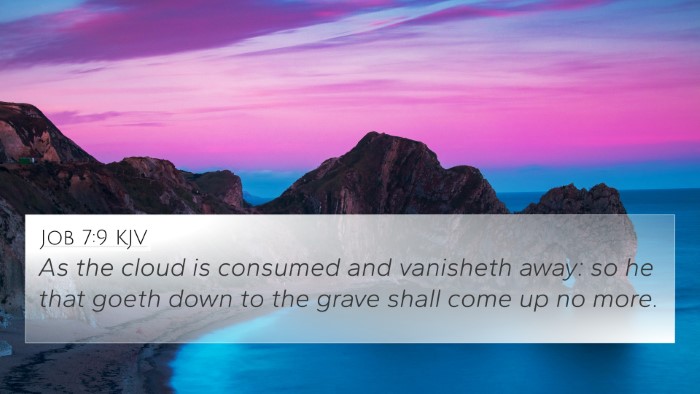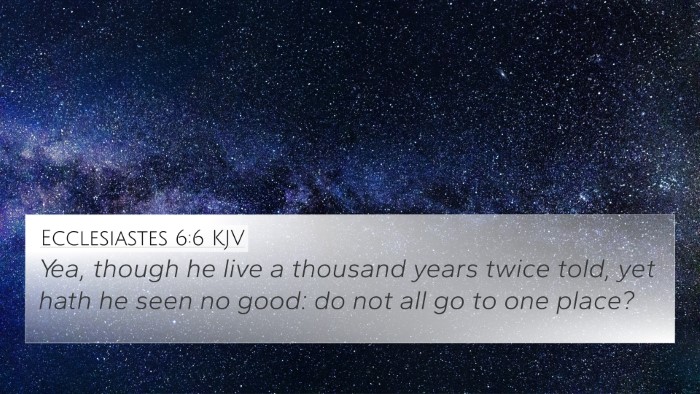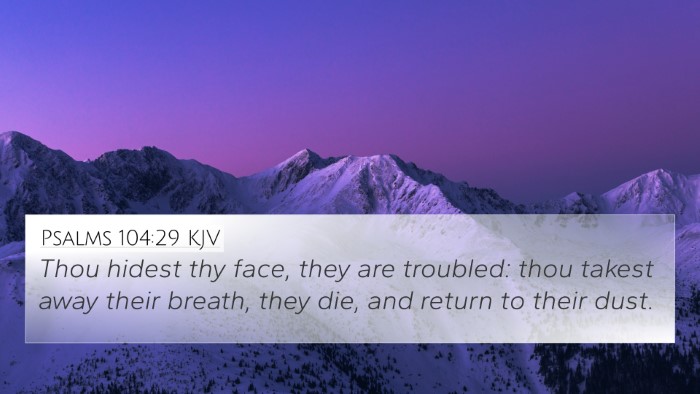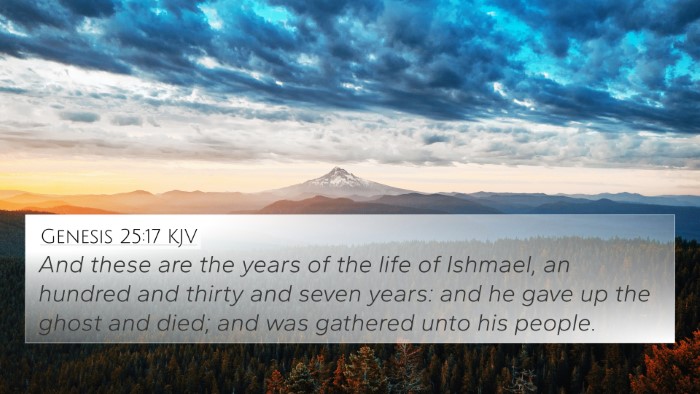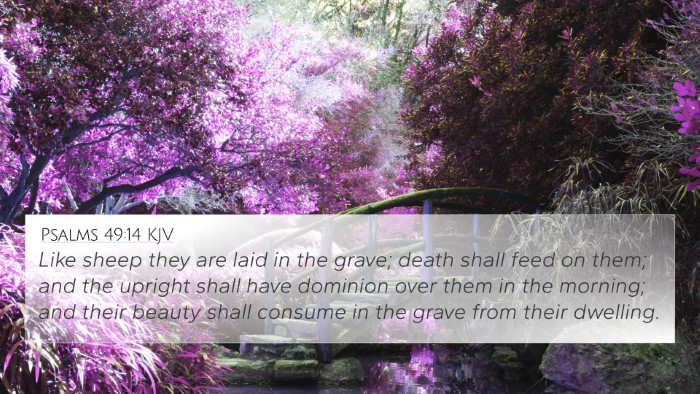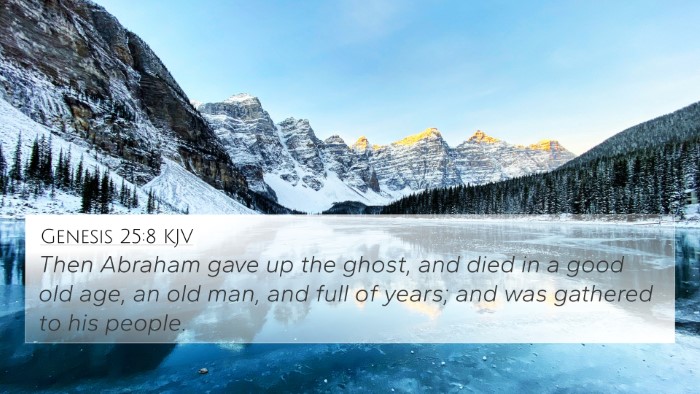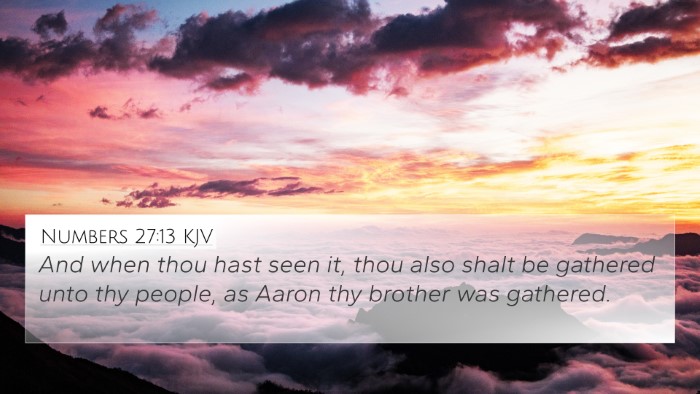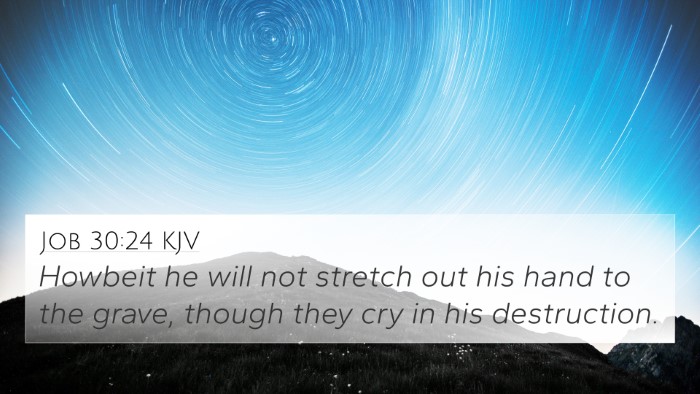Understanding Ecclesiastes 3:20
Ecclesiastes 3:20 states: "All go to one place; all are from the dust, and to dust all return." This verse captures the fundamental truth of human mortality and the cyclical nature of life.
This verse serves as a poignant reminder of our shared humanity and the inevitability of death. Numerous commentaries shed light on its profound implications.
Insights from Public Domain Commentaries
- Matthew Henry: Henry emphasizes the equality of all people in death, noting that regardless of wealth, status, or achievements, all ultimately return to the ground from which they were created. He highlights the fleeting nature of earthly pursuits and the vanity of life if not aligned with eternal truths.
- Albert Barnes: Barnes provides a theological reflection that connects this verse to the doctrine of creation, underscoring that all humans originated from the earth. He stresses the importance of recognizing our mortality and the need for a life lived in perspective of eternity.
- Adam Clarke: Clarke notes the philosophical implications of the verse. He suggests that while life appears varied and individual, the end is universally the same. This reality urges individuals to seek meaning beyond mere existence, as life has a purpose that transcends physical demise.
Thematic Connections
Ecclesiastes 3:20 connects thematically with several key Biblical concepts:
- Genesis 3:19: "By the sweat of your brow you will eat your food until you return to the ground, since from it you were taken; for dust you are and to dust you will return." This verse reinforces the message of mortality and our origin from dust.
- Psalm 103:14: "For he knows how we are formed, he remembers that we are dust." This verse speaks to God's understanding of our humanity and limitations.
- Job 34:15: "All flesh would perish together, and man would return to dust." Job's declaration underscores the universal fate of all living beings.
- Romans 5:12: "Therefore, just as sin entered the world through one man, and death through sin, and in this way death came to all people, because all sinned." This New Testament verse examines the role of sin in humanity’s mortality.
- Ecclesiastes 12:7: "And the dust returns to the ground it came from, and the spirit returns to God who gave it." This connects directly to the essence of our existence and the ultimate return to the Creator.
- Hebrews 9:27: "Just as people are destined to die once, and after that to face judgment." This highlights the certitude of death and the ensuing spiritual accountability.
- 1 Corinthians 15:22: "For as in Adam all die, so in Christ all will be made alive." Here, the contrast between physical death and spiritual resurrection through Christ offers hope beyond mortality.
Cross-Referencing Biblical Texts
Understanding Ecclesiastes 3:20 within the broader scope of Scripture involves seeing how this verse dialogues with others:
- Linking Bible Scriptures: The connections drawn in Ecclesiastes 3:20 with Genesis and Psalms illustrate a thematic continuity regarding human origins and mortality.
- Bible Verses That Relate to Each Other: The exploration of death and life’s transient nature is prevalent throughout the Biblical text.
- Comparative Bible Verse Analysis: By examining related verses, we can better understand the implications of mortality and the hope for eternal life.
- Thematic Bible Verse Connections: Themes of life, death, purpose, and divine accountability can be traced throughout both the Old and New Testaments.
Tools for Bible Cross-Referencing
For deeper study, utilizing tools for Bible cross-referencing can significantly enhance your understanding:
- Bible concordances can help track the occurrences of similar themes.
- A Bible cross-reference guide provides immediate connections to other scriptures.
- Engaging in cross-reference Bible study methods aids in uncovering the full narrative of Biblical teachings.
Conclusion
The profound truth found in Ecclesiastes 3:20 invites reflection on the ephemeral nature of life and the certainty of death. As we study this verse alongside others, we realize the necessity of seeking deeper spiritual understanding and living with an awareness of eternity.
Overall, the exploration of these themes can lead to a more enriched faith and a comprehensive grasp of the Biblical message regarding life, purpose, and what lies beyond. By understanding and utilizing cross-references effectively, we create an inter-Biblical dialogue that deepens our faith journey.



